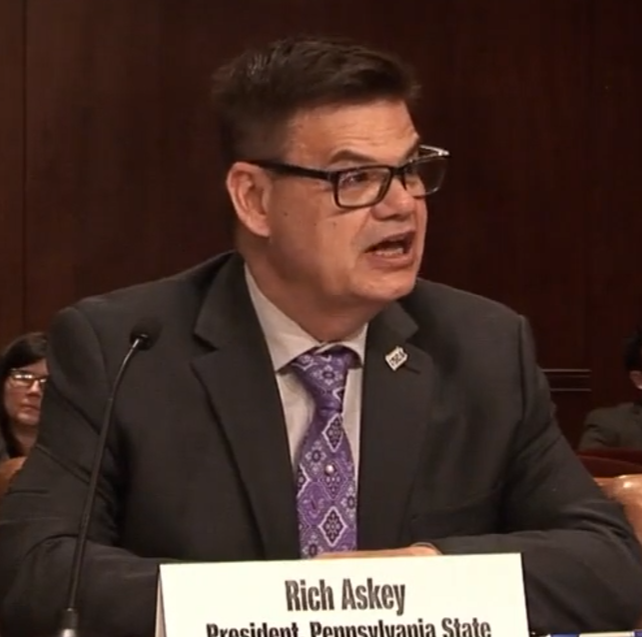The Pennsylvania Senate Education Committee held a hearing two weeks ago on the narratives surrounding teacher staffing issues. Discussion included alleged teacher shortages in the state and potential causes and solutions. At least one speaker suggested the problem comes from poor management of the Commonwealth’s schools.
Dr. Tanya Garcia, who is the Deputy Secretary for Postsecondary and Higher Education at the Pennsylvania Department of Education, shared the department’s take on the teacher staffing issues. Garcia claimed that there are “many teacher shortage areas in elementary education, special education, foreign language instruction, career and technical education, and English language instruction” and that student enrollment in teacher courses at colleges have plummeted in Pennsylvania. “We have a supply-and-demand situation there to solve,” Garcia said, because out of 650,000 college students, only 20,000 enrolled as future teachers.
She noted that Pennsylvania had “a long history of formerly exporting its graduates to other states [but] that is not the case today.” Garcia said in Pennsylvania, there has been a 70% decline in issuing teaching certificates in the past twelve years.
Pennsylvania State Educators Association (PSEA) President Rick Askey echoed similar rhetoric as Dr. Garcia. “The educator shortage is a crisis,” he said, “It is a disaster that is staring us in the face.” Askey also highlighted PSEA’s policy proposals, which were raising minimum teacher pay to $60,000 a year, paying student teacher and intern stipends, and growing the teacher pool.
Yet, Commonwealth Foundation’s Director of Policy Analysis, Elizabeth Stelle explained how some of the claims made by other panelists were misleading. Stelle said, “It is a little strong to say that there is a crisis across the board” because “the numbers do not show a statewide crisis.”
“There are more teachers in Pennsylvania,” said Stelle, “and fewer students.” For example, she found that rural districts continue to hire new teachers despite decreasing student enrollment. Stelle also pointed out that, since 2000, student enrollment in Pennsylvania has dropped 6.6% (or 120,000 fewer students) while schools increased the number of employees by 8.7% (or 20,000 additional employees).
One would expect declining enrollment to lead to a drop in hiring, but that is not the case in Pennsylvania, and many other states, which has done the opposite.
Instead, she framed the issue as a “distribution problem” and explained that Pennsylvania ranks eighth highest in public school funding in the country, but the ineffective distribution of that funding has created today’s problems. Stelle noted that the school funding formula “is not student-based; it is system-based and that creates disparity” because the existing “old formulas no longer apply” to today’s current education environment where thousands of families have chosen to attend non-traditional public schools. Pennsylvania’s education funding goes directly to school districts, but it does not follow the student if they leave their traditional public school to attend a charter school (which is the case for 152,000 students who switched to charter schools between 1999-2000 to 2021-2022).
Stelle also asserted that Pennsylvania’s unfunded pension liabilities are hamstringing teacher pay. “We could be paying teachers $20,000 more” if pensions were fully funded and modernized, which would also give teachers more control and mobility in their careers. Stelle’s proposal to resolve the pension issue would boost annual teacher pay, which would also satisfy the PSEA’s policy proposal to boost teacher pay.
She said that the current teaching structure is out-of-touch because teachers are “only rewarded for seniority or for additional education credits” and the lack of merit pay. Stelle suggested that collective bargaining agreements should be adjusted to help teachers thrive and succeed professionally, as well as making it less burdensome for non-education professionals to start a second career as teachers.
Neither Garcia nor Askey, in their testimonies before the committee, addressed the many additional education-related issues facing Pennsylvania’s schools and teachers highlighted in Stelle’s testimony.
